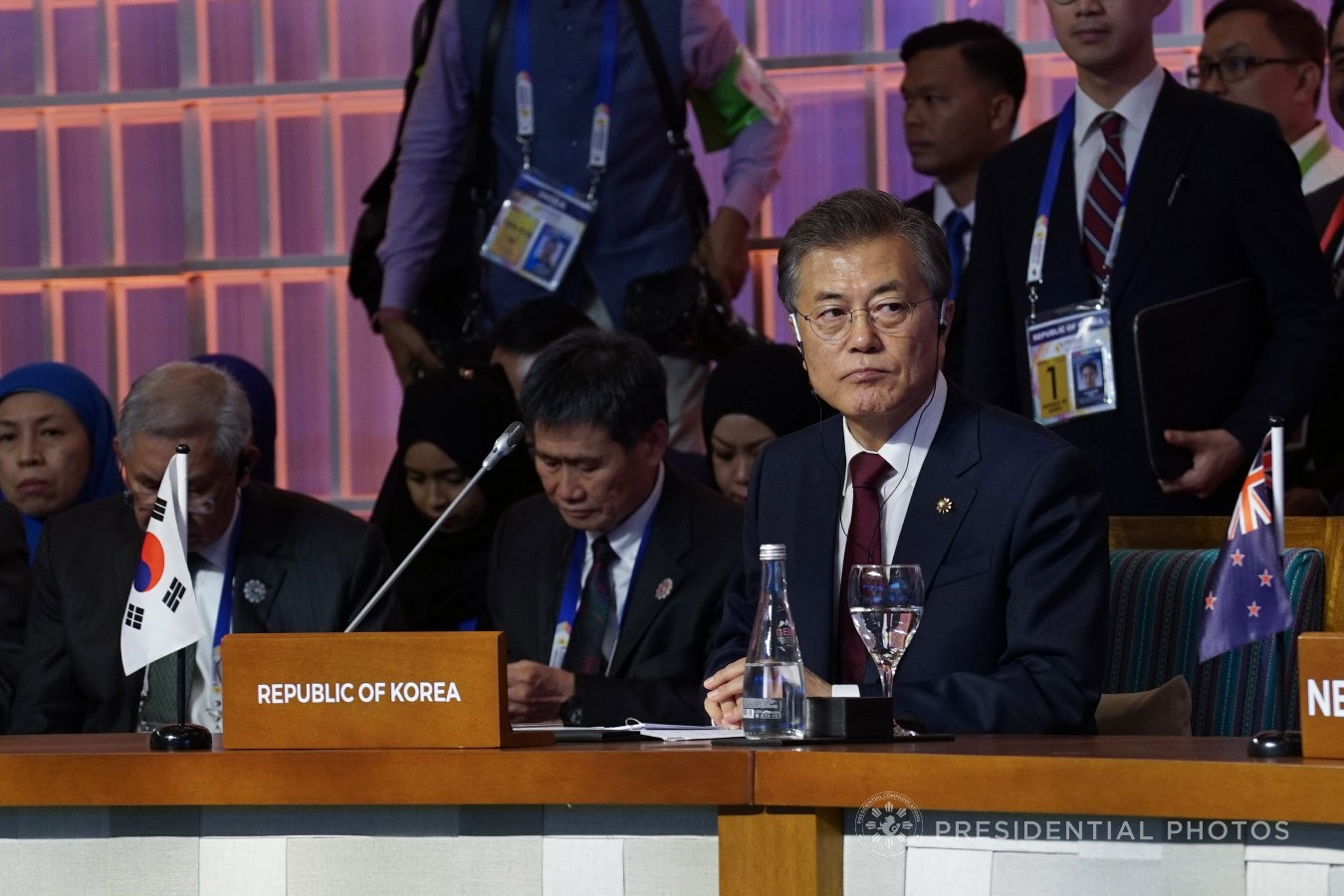
SEOUL, Korea, Republic Of — South Korean President Moon Jae-in said Thursday the country’s 2015 agreement with Japan to settle a decades-long impasse over Korean women forced into wartime sexual slavery was seriously flawed.
Moon’s statement in which he vows unspecified follow-up measures to meet the victims’ demands potentially throws the future of the deal in doubt, two years after both countries declared it as “final and irreversible.”
The statement came a day after a state-appointed panel concluded that Seoul’s previous conservative government failed to properly communicate with the victims before reaching the deal.
The panel also said parts of the deal were not made public, including Japanese demands that the South Korean government avoid using the term “sexual slavery” and provide a specific plan to remove a bronze statue representing sex slaves in front of its Seoul embassy. South Korea in response said it would formally refer to the victims as “victims of Japanese military comfort stations” but didn’t make any clear promise about the statue, according to the panel.
“It has been confirmed that the 2015 comfort women negotiation between South Korea had serious flaws, both in process and content,” Moon said in a statement read out by his spokesman.
“Despite the burden of the past agreement being a formal promise between governments that was ratified by the leaders of both countries, I, as president and with the Korean people, once again firmly state that this agreement does not resolve the issue over comfort women.”
While his comments seemed to suggest that Seoul may seek a renegotiation of the deal, which would surely anger Tokyo, Moon also said that the issues over history shouldn’t affect the efforts to build “future-oriented” relations between the countries.
Some experts see it as unlikely that Moon’s government will spark a full-blown diplomatic row with Japan by scrapping the deal when the allies face pressing needs to form a strong united front against North Korea’s growing nuclear threat.
Japanese Foreign Minister Taro Kono on Wednesday said that Japan stands by the agreement, which he said was reached through a legitimate negotiation and that any possible attempt toward a revision would make the relations between the countries “unmanageable” and “unacceptable.”
Asked whether Moon’s attack on the deal means that a renegotiation may be inevitable, Seoul’s Foreign Ministry spokesman Noh Kyu-duk didn’t provide a straightforward answer, saying only that his government will pursue “sincere and practical” measures as soon as possible to restore the honour and dignity of the victims.
Under the deal, Japan agreed to provide 1 billion yen ($8.8 million) in cash payments to the dwindling number of surviving victims, while South Korea said it will try to resolve Japanese grievance over the statue in front of the embassy.
The deal came under heavy criticism in South Korea where many thought the government settled for far too less. Japan has been angry that South Korea hasn’t taken specific steps to remove the statue and similar monuments in other places in the country, insisting there has been a clear understanding to do so.
The deal had been negotiated under Moon’s conservative predecessor Park Geun-hye, who was ousted from office and arrested in March over a corruption scandal. Moon vowed to redo the deal during his presidential campaign, but has so far avoided specific talk about any renegotiation since taking office in May.
The Foreign Ministry said government officials will hold extensive discussions with victims and experts before deciding whether to pursue changes to the deal.
Disputes over sex slaves are a legacy of Japan’s 1910-45 colonial occupation of the Korean Peninsula. Many in both North and South Korea, divided at the end of the Japanese rule, still harbour bitter resentment against the Japanese occupation.
Historians say tens of thousands of women from around Asia, many of them Korean, were sent to front-line military brothels to provide sex to Japanese soldiers during World War II.